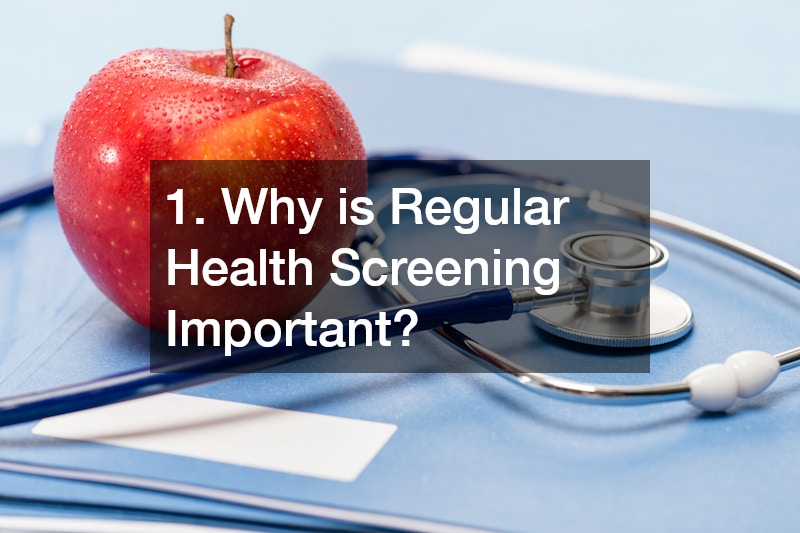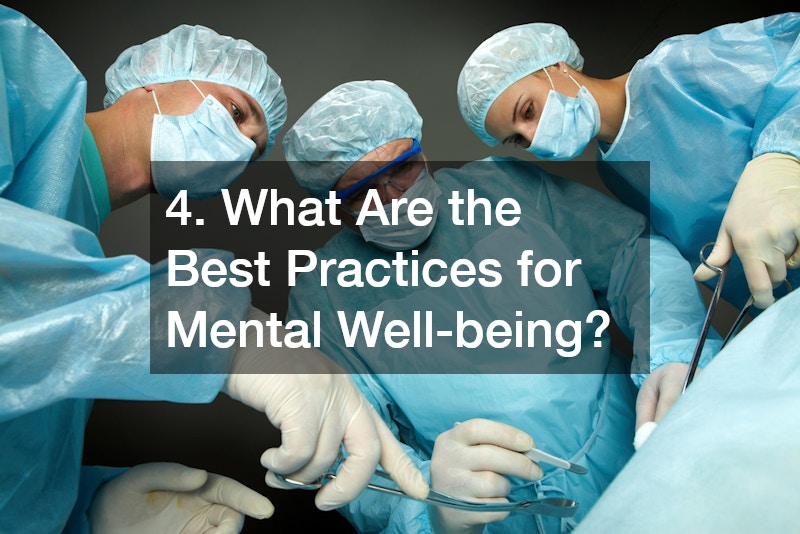In today’s complex world, understanding all things health is more important than ever. Proper healthcare is not just about visiting a physician when you feel unwell; it involves a proactive approach that spans nutrition, exercise, mental well-being, preventive practices, and more. Yet, navigating the healthcare system can feel overwhelming, especially with the abundance of information, medical terminology, and a variety of healthcare services available. Knowing the essential facts about healthcare empowers individuals to make informed decisions and take control of their long-term well-being.
Healthcare is a dynamic field that continues to evolve, with innovations in personalized medicine, telehealth, and community-based programs transforming the way individuals access care. By understanding all things health, you can maximize the benefits of the services available and avoid common pitfalls, such as neglecting preventive screenings or ignoring mental health needs. This article delves into ten key facts about achieving proper healthcare, covering everything from regular screenings and balanced diets to lifestyle choices, preventive care, and community support. By exploring these critical areas, readers will gain a clearer picture of how to maintain optimal health, reduce risks of chronic disease, and improve overall quality of life.
1. Why is Regular Health Screening Important?

Regular health screening is a cornerstone of effective healthcare. Many diseases, such as diabetes, hypertension, and certain cancers, can progress silently without obvious symptoms. Early detection through routine screenings allows for timely intervention, reducing the likelihood of severe complications. A physician can recommend screenings based on age, family history, and lifestyle factors, ensuring that preventive measures are targeted and effective.
For example, blood pressure checks, cholesterol testing, and colonoscopies can reveal early warning signs of potentially life-threatening conditions. Similarly, vision and hearing exams, dental checkups, and skin assessments contribute to comprehensive health monitoring. Emphasizing all things health, regular screenings empower individuals to take proactive steps, make lifestyle adjustments, and follow personalized treatment plans. Ultimately, timely screenings improve life expectancy and reduce healthcare costs by addressing problems before they become severe.
2. What Are the Key Components of a Balanced Diet?
Nutrition plays a vital role in maintaining optimal health. Understanding all things health includes recognizing the key components of a balanced diet. A healthy eating plan provides essential nutrients such as vitamins, minerals, fiber, protein, and healthy fats. Fruits, vegetables, whole grains, lean proteins, and low-fat dairy products form the foundation of a balanced diet, supporting bodily functions and overall well-being.
Chiropractic care practitioners often emphasize that proper nutrition complements physical treatments by strengthening bones, muscles, and joints. Reducing processed foods, added sugars, and unhealthy fats can prevent chronic conditions like obesity, heart disease, and type 2 diabetes. Incorporating hydration and mindful eating habits further supports digestive health and cognitive function. By adopting a balanced diet and understanding all things health, individuals can enhance energy levels, support immunity, and maintain a healthy weight throughout life.
3. How Does Exercise Improve Health?
Exercise is a fundamental pillar of maintaining overall health and well-being, making it a critical factor in achieving proper healthcare. Regular physical activity not only strengthens the heart and improves circulation but also enhances muscular strength, bone density, and joint flexibility, which are essential for mobility and injury prevention. Engaging in consistent exercise helps regulate body weight, improves metabolism, and lowers the risk of developing chronic conditions such as hypertension, type 2 diabetes, heart disease, and certain types of cancer. Beyond its physical benefits, exercise plays a crucial role in mental health by reducing stress, anxiety, and depression. The release of endorphins during physical activity serves as a natural mood enhancer, boosting feelings of well-being and promoting emotional balance.
Many addiction treatment clinics recognize the importance of exercise in recovery programs. Incorporating physical activity into these programs can help reduce stress, improve sleep quality, and provide patients with a sense of accomplishment and routine. Additionally, exercise encourages social interaction when done in group settings, fostering community support and accountability. Cardiovascular workouts, strength training, yoga, and low-impact activities such as swimming, walking, or cycling all contribute to a holistic approach to health, addressing both the body and mind. Understanding all things health includes recognizing that even moderate, consistent exercise can lead to significant improvements in short-term energy levels, mood, and cognitive function, while also providing long-term benefits that enhance overall quality of life and longevity. By integrating exercise into daily routines, individuals can create sustainable habits that promote lifelong wellness and resilience against disease.
4. What Are the Best Practices for Mental Well-being?

Mental health is an essential component of overall well-being, influencing not only emotional and psychological stability but also physical health. Supporting mental wellness involves adopting practices that reduce stress, enhance emotional resilience, and promote a balanced lifestyle. Stress management techniques, such as meditation, deep breathing exercises, yoga, and journaling, can help regulate mood, improve focus, and reduce the physiological effects of chronic stress. Adequate sleep is another critical factor, as poor sleep patterns have been linked to impaired cognitive function, mood disorders, and decreased immunity. Mindfulness practices encourage present-moment awareness, helping individuals navigate daily challenges more effectively while fostering emotional self-care and self-compassion.
In-home care services play a valuable role in supporting mental well-being, particularly for seniors, individuals with chronic illnesses, or those recovering from medical procedures. Caregivers provide companionship, assistance with daily routines, and emotional support, reducing feelings of loneliness, anxiety, and depression.
Mental health is intrinsically connected to physical health; chronic stress, depression, and anxiety can exacerbate cardiovascular conditions, digestive issues, and weaken the immune system. By prioritizing mental health and incorporating strategies from all things health, individuals can enhance cognitive function, maintain emotional balance, and achieve a higher quality of life. Emphasizing mental wellness not only improves day-to-day functioning but also lays the foundation for long-term health and resilience, empowering individuals to navigate life’s challenges with greater confidence and stability.
5. How Can Preventive Healthcare Enhance Quality of Life?
Preventive healthcare focuses on identifying and addressing potential health issues before they become serious or life-threatening. By taking a proactive approach, individuals can significantly reduce their risk of developing chronic conditions such as heart disease, diabetes, and certain cancers. Routine vaccinations protect against infectious diseases, while regular screenings—including blood pressure checks, cholesterol testing, mammograms, and colonoscopies—allow healthcare providers to detect early warning signs and intervene promptly. Lifestyle interventions, such as adopting a balanced diet, maintaining a healthy weight, and engaging in regular physical activity, complement these measures and play a vital role in sustaining long-term health.
Elder care community programs particularly highlight the importance of preventive care for older adults. These programs often include comprehensive health checkups, fall prevention initiatives, medication management, cognitive assessments, and nutritional support. Such measures not only improve physical health but also enhance mental and emotional well-being, enabling older adults to maintain independence and quality of life. Preventive care also contributes to reducing healthcare costs over time by avoiding expensive treatments for advanced illnesses and hospitalizations.
By embracing all things health through preventive care, individuals are empowered to take control of their well-being. Preventive strategies foster healthy habits, promote mobility, and encourage engagement in social and community activities.
6. What Are the Challenges in Accessing Healthcare?
Despite significant advancements in medicine and healthcare infrastructure, accessing quality healthcare remains a major challenge for many individuals. Geographic barriers, such as living in rural or underserved areas, often limit access to hospitals, clinics, and specialized care providers. Financial constraints, including lack of insurance coverage or high out-of-pocket costs, can also prevent timely medical attention. Long waiting times for appointments or procedures further exacerbate these issues, leaving many patients with delayed diagnoses and treatments. To address these obstacles, healthcare courses and educational programs are increasingly focusing on training professionals who can navigate these barriers and raise awareness about available healthcare resources, community clinics, telehealth services, and insurance options.
Socioeconomic factors, cultural differences, and language barriers further complicate healthcare access. Individuals from marginalized communities may face discrimination, mistrust, or unfamiliarity with the healthcare system, which can discourage them from seeking necessary care. Health literacy plays a crucial role in bridging this gap, ensuring that patients understand medical instructions, medication regimens, and preventive measures. By improving education, outreach, and communication, society can create a more inclusive healthcare environment. Addressing these challenges ensures that more people can benefit from all things health, promoting equitable healthcare delivery and ensuring that quality care is accessible to everyone, regardless of their geographic, financial, or cultural circumstances.
7. Why is Personalized Medicine Gaining Importance?

Personalized medicine tailors healthcare strategies to an individual’s unique genetic, environmental, and lifestyle factors, providing a more precise and effective approach to treatment. Phlebotomy programs and other diagnostic services play a critical role in this process by collecting accurate blood samples and other biometrics, which allow healthcare providers to analyze genetic markers, hormone levels, and metabolic profiles. This detailed information enables physicians to design treatment plans that maximize drug efficacy, minimize adverse effects, and improve overall patient outcomes. By integrating data from multiple sources, personalized medicine ensures that interventions are not only targeted but also adaptive to the patient’s ongoing health status.
This approach represents a significant departure from traditional one-size-fits-all treatment plans, emphasizing individualized care that considers a patient’s specific risk factors, lifestyle, and medical history. Techniques such as genetic testing, biomarker analysis, pharmacogenomics, and advanced imaging allow clinicians to predict disease susceptibility, monitor progression, and select therapies most likely to succeed. Understanding all things health involves recognizing that personalized medicine is increasingly essential in modern healthcare, offering safer, more effective treatments and improving preventive strategies. By adopting this approach, patients gain greater control over their health, benefit from earlier interventions, and experience a more proactive and informed healthcare journey.
8. How Do Lifestyle Choices Affect Long-term Health?
Lifestyle choices have a profound impact on long-term health outcomes. Smoking, excessive alcohol consumption, sedentary behavior, and poor nutrition increase the risk of chronic diseases, including cardiovascular disease, diabetes, and cancer. Conversely, healthy habits such as regular exercise, balanced nutrition, adequate sleep, and stress management promote longevity and reduce disease risk.
Memory care facility programs often emphasize lifestyle interventions for older adults to maintain cognitive function and prevent memory decline. By integrating lifestyle changes into daily routines, individuals can take control of their health trajectory. Understanding all things health involves recognizing that consistent, positive choices accumulate over time, leading to better physical, mental, and emotional well-being.
9. What Are Alternative Medicine Practices and Their Effects?
Alternative medicine practices, including acupuncture, herbal remedies, meditation, and massage therapy, are increasingly integrated into comprehensive healthcare strategies. Health insurance company programs sometimes cover complementary therapies when they support conventional treatment plans. These practices can reduce stress, alleviate pain, and enhance overall quality of life when applied safely.
While alternative medicine is not a substitute for evidence-based medical care, it offers supportive benefits and can be tailored to individual needs. Patients should communicate with their healthcare providers to ensure compatibility with existing treatments. By exploring all things health holistically, individuals can combine conventional and alternative approaches to optimize outcomes and promote overall wellness.
10. How Can Community Support Enhance Healthcare Outcomes?

Community support plays a significant role in improving healthcare outcomes. Local programs, support groups, and wellness initiatives can help individuals maintain healthy behaviors, adhere to treatment plans, and access necessary resources. Weight loss programs, elder care communities, and in home care services often integrate social support as a critical element of care.
Being part of a supportive community reduces feelings of isolation, promotes accountability, and encourages participation in preventive health measures. Peer encouragement, shared resources, and educational workshops create an environment that reinforces positive health behaviors. Understanding all things health includes recognizing that individual wellness is closely linked to community engagement, which can significantly enhance both physical and mental health outcomes.
Proper healthcare requires a comprehensive understanding of all things health. From regular health screenings and balanced nutrition to mental well-being, preventive care, and community support, individuals must consider multiple factors to maintain optimal health. Personalized medicine, lifestyle choices, and alternative practices further contribute to improved outcomes, while awareness of access challenges ensures equitable care for all.
By staying informed about these ten essential facts, individuals can make proactive decisions, prevent chronic conditions, and enjoy a higher quality of life. Embracing a holistic approach to healthcare not only benefits personal health but also strengthens families and communities. Ultimately, knowledge of all things health empowers individuals to take control of their well-being, navigate the healthcare system confidently, and achieve sustainable, long-term health benefits.
